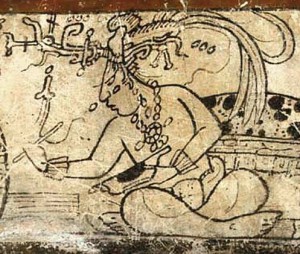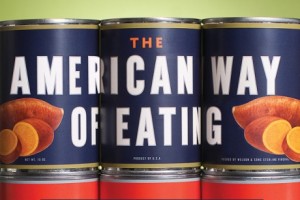Writing about genetically modified food last week got me thinking about Humanity’s history of mutating the plant world to its gastro-nutritional whim. It is those directed mutations that created civilization itself. For instance:
In the beginning, the gods of the Maya created humans out of mud. But the mud men squinted at the world, and could not take it in. They could not move to chase game or to seek shelter, and their thoughts were clogged. The rains washed them away.
The gods then made humans out of wood. These men could speak and see and move. On all fours, they climbed through the jungle canopies and rambled over the valleys, but they failed to honor the gods as the gods saw fit. Perhaps their taste of freedom was too complete. Perhaps they razed the jungles where their flesh was found. The gods thus destroyed them.
And so the gods tried a third time. They made Man out of maize. And this Man was in harmony. Continue reading



